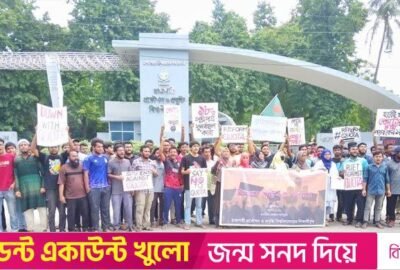Bangladesh’s strategic investment in power sector propels sustainable development agenda
Bangladesh, a nation fervently committed to its journey of economic prosperity and sustainable development, unveils a visionary roadmap for the power sector in the fiscal year 2024-25 budget. With a resolute focus on fortifying its energy infrastructure, the government allocates a substantial Taka 30,317 crore (approximately US$3.6 billion) towards catalyzing advancements in power generation, transmission, and distribution. This robust investment underscores Bangladesh’s unwavering resolve to ensure universal electricity access, bolster generation capacity, and enhance energy resilience to propel its developmental aspirations.
Finance Minister Abul Hassan Mahmood Ali, in his budget presentation, underscores the indispensable role of the power and energy sector as the linchpin of Bangladesh’s progress. The allocation of Taka 29,230 crore (approximately US$2.96 billion) to the Power Division, complemented by Taka 1,087 crore designated for the Energy and Mineral Resources Division, reflects a strategic prioritization aimed at fostering sustainable growth and development. While the allocation demonstrates a marginal decrease compared to the previous fiscal year’s budget of Taka 34,819 crore (approximately US$3.97 billion), the government’s unwavering commitment to realizing the long-term vision of a “Smart Bangladesh” by 2041 remains resolute.
Central to Bangladesh’s strategic agenda is the transformation of its power infrastructure into a smart, efficient ecosystem poised to meet the evolving needs of its populace. The envisaged integration of smart grid technology promises to revolutionize energy management, enhance reliability, and optimize resource allocation across the nation. Ongoing projects underscore the government’s proactive stance towards modernizing and fortifying the foundational pillars of the power sector to meet the demands of a rapidly advancing economy.
Over the years, Bangladesh has witnessed remarkable strides in augmenting its power generation capacity. From a modest 4,942 MW in 2009, the capacity has surged to an impressive 30,277 MW, inclusive of captive and renewable energy sources. This exponential growth has not only propelled economic development but has also significantly elevated the per capita power generation, soaring from 220 kWh to 602 kWh. With ambitious targets set for the future, Bangladesh aims to escalate its capacity to 40,000 MW by 2030 and an impressive 60,000 MW by 2041, underscoring its commitment to meeting the burgeoning energy demands of its growing economy.
Moreover, concerted efforts have been directed towards expanding the transmission network, evident in the construction of over 7,000 circuit kilometers of transmission lines in the past 15 years, totaling a length of 15,246 circuit kilometers. Simultaneously, the distribution network has undergone substantial augmentation, boasting a cumulative length of 643,000 kilometers. These enhancements have been instrumental in curbing electricity distribution losses, plummeting from 14.33% in 2009 to a commendable 7.65% in 2023, thereby ensuring efficient delivery of electricity to consumers nationwide.
With a steadfast commitment to sustainability, Bangladesh is prioritizing renewable energy sources in its long-term power generation strategy. A bold target has been set to derive 40 percent of the nation’s total power from renewable sources by 2041, underlining its commitment to combating climate change and reducing carbon emissions. Leveraging regional cooperation initiatives, Bangladesh aims to import approximately 9,000 MW of electricity from neighboring countries by 2041, augmenting its domestic capacity and fostering greater energy security.
The construction of the Rooppur Nuclear Power Plant in Pabna marks a significant milestone in Bangladesh’s energy landscape. Upon completion, this state-of-the-art facility will inject a formidable 2,400 MW into the national grid, catalyzing economic growth and energy security while adhering to the highest safety standards and international protocols.
Transparency and accountability remain paramount in the government’s agenda for the power sector. Initiatives such as the installation of smart prepaid meters, with over 630,000 units already deployed, signify a proactive approach towards enhancing consumer engagement and service quality. Furthermore, automation of billing, grievance redressal, and new connection processes underscores the government’s commitment to operational efficiency and customer satisfaction.
In tandem with efforts to bolster energy security, Bangladesh has witnessed a commendable surge in natural gas production, supplemented by LNG imports to meet burgeoning demand. The country’s coal extraction endeavors have also yielded promising results, with the Barapukuria coal mine contributing significantly to fuel reserves. Furthermore, investments in expanding fuel oil storage capacity and refining infrastructure underscore Bangladesh’s proactive stance towards ensuring energy resilience and sustainability.
The FY 2024-25 budget allocation for the power sector epitomizes Bangladesh’s steadfast dedication to fostering a secure and sustainable energy landscape. By embracing innovation, prioritizing renewable energy, and fostering regional partnerships, Bangladesh is poised to realize its vision of a “Smart Bangladesh” powered by a resilient and inclusive energy sector, laying the groundwork for a prosperous and sustainable future for generations to come.
The post Bangladesh’s strategic investment in power sector propels sustainable development agenda appeared first on BLiTZ.






